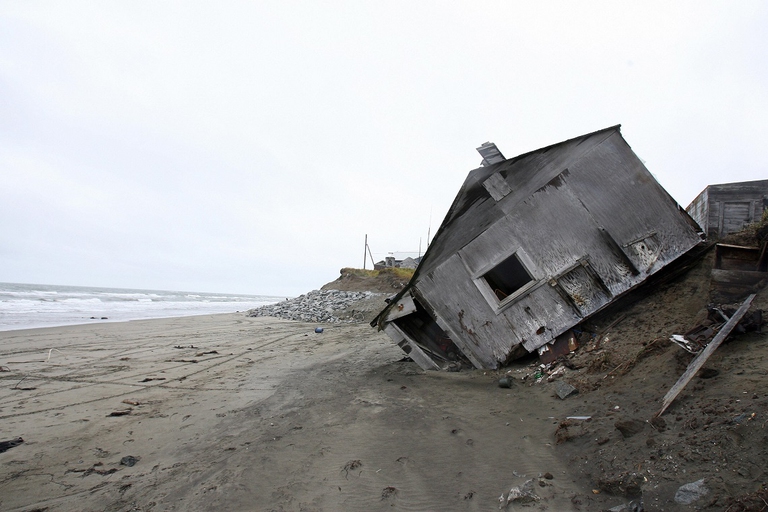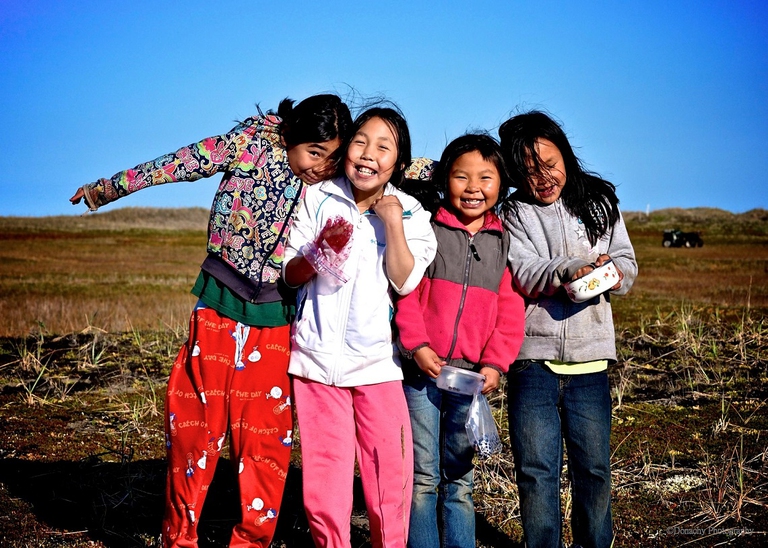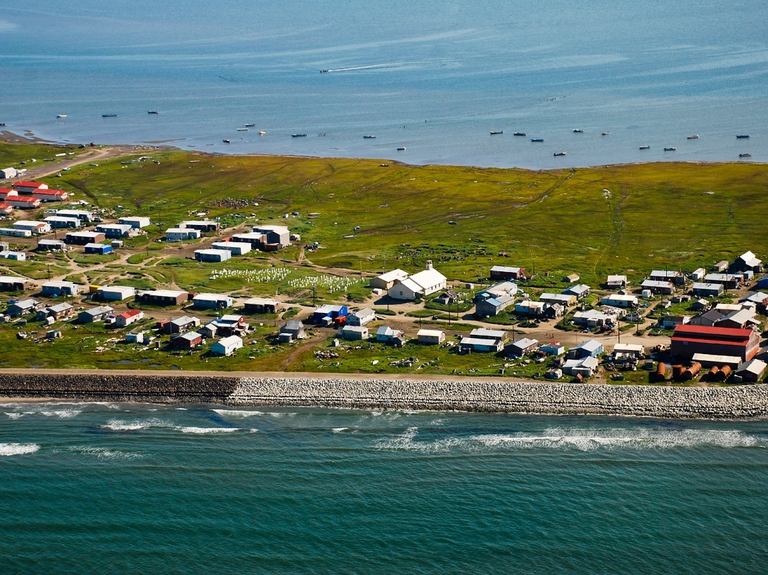
After a landslide led to twelve deaths on the island of Ischia, questions have been raised about the impacts of illegal building, tourism, and climate change.
The inhabitants of Shishmaref, a small village in the heart of Alaska, have decided to relocate their town due to rising sea levels.
The coastline is rapidly disappearing and sea levels are gradually but relentlessly rising. Concerned with these phenomena and disappointed with climate change, residents in the village of Shishmaref, Alaska, have decided to move their entire community.
In this Inuit village, whose original name is Qigiqtaq, there’s one of the last communities of Iñupiat, an ancient people native to Alaska. From time immemorial the Iñupiat have been living in these inhospitable lands, covered with ice for most of the year, hunting caribou and bearded seals. However, due to global warming, their village could disappear forever.
Shishmaref is located on the island of Sarichef, about fifty kilometres above the Arctic Circle and only five metres above sea level. For this reason, rising sea levels are a real threat to this town. It is estimated that waves erode about six metres of coast every year, while rising temperatures cause the ice to melt more quickly.
The six hundred people living in Shishmaref have been asked to cast their ballot to decide the fate of their community. Most of the voters, 89, voted in favour of relocating the village in a safer area, while 78 people voted to remain in the current position.
Displacing the village and its inhabitants would take about 180 million dollars, according to a study conducted by the US Army Corps of Engineers, while remaining in the current location would take at least 110 million dollars needed for strengthening works (thirteen beach houses have already been relocated). US Interior secretary Sally Jewell announced that 8 million dollars will fund “projects that promote tribal climate change adaptation” in Alaska. But this sum is way too small compared to what the community needs to move.
If the funds are collected and the relocation ends well, two potential areas have been identified where the new Shishmaref will rise: Old Pond and West Tin Creek Hills, two places that are not so far from the current village but are less threatened by coastal erosion.
Other villages will suffer the same fate as Shishmaref. According to research carried out by the US Government Accountability Office (GAO), Shishmaref is one of the thirty-one countries to face “imminent threats” from flooding and coastal erosion. Another two hundred villages will face the same emergency in the future. On February 2016, Native Americans of the Biloxi-Chitimacha-Choctaw tribe living in the Island of Jean Charles, South Louisiana, were obliged to leave their land forever becoming the first climate refugees of the United States.
Siamo anche su WhatsApp. Segui il canale ufficiale LifeGate per restare aggiornata, aggiornato sulle ultime notizie e sulle nostre attività.
![]()
Quest'opera è distribuita con Licenza Creative Commons Attribuzione - Non commerciale - Non opere derivate 4.0 Internazionale.
After a landslide led to twelve deaths on the island of Ischia, questions have been raised about the impacts of illegal building, tourism, and climate change.
Not much snow, peaks of 19 degrees Celsius in Norway and even 28 degrees in France: official data confirms the anomalously high temperatures of this past winter.
Ocean warming has risen to record highs over the last five years: just in 2019 the heat released into the world’s oceans was equivalent to that of 5-6 atomic bombs per second. The culprit, no doubt, is climate change.
What did Greta Thunberg tell participants at the 2020 World Economic Forum in Davos? Once again, the Swedish activist underlined the total lack of concrete solutions to the climate crisis presented by leaders so far.
The list of human and animal victims of the Australia wildfires keeps growing – one species might already have gone extinct – as the smoke even reaches South America.
Kivalina is located on a small island once guarded by sea ice, which is now melting due to global warming. While the sea threatens to wipe the village off the face of the Earth, its inhabitants refuse to give up their lives and traditions.
Thanks to activists, the voice of the world’s peoples resounded through the COP25 like an alarm bell. Governments didn’t reach the results they demanded, but their cries and messages were stronger than ever, reaching even those who weren’t in Madrid.
Climate change poses a risk for millions. However, women are the most vulnerable to its negative consequences: a few simple considerations by the Italian Climate Network help us perceive the global implications of this.
The COP25 ended two days late and with very few steps ahead made. Climate negotiations in 2020 will be an uphill battle as political will clearly seems to be lacking, once again.










